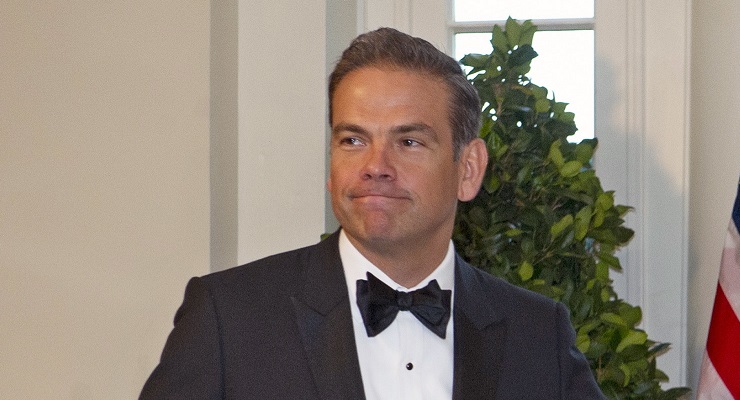
Crikey will be allowed to play Fox News coverage in court when a defamation suit against the outlet by Lachlan Murdoch goes to trial, and Murdoch will be allowed to argue Crikey was acting with malice, a judge has said.
Justice Michael Wigney dismissed duelling applications on Friday by Murdoch and Crikey where the parties sought to persuade him specific bits of their arguments should be limited with regards to how they are to be heard in court.
He said there was no reason to strike out Crikey’s public interest defence, saying it was more appropriate to let it be argued at trial.
“Both parties were unsuccessful, or successful, depending on which way one looks at it,” Justice Wigney said.
The decision on the parties’ interlocutory applications goes some way towards clarifying what arguments will be heard in court when the case goes to trial in March next year.
Murdoch is suing Crikey’s parent company Private Media, political editor Bernard Keane and editor-in-chief Peter Fray for defamation, saying an article published in June caused serious harm to Murdoch’s reputation.
Crikey is arguing in its defence the publication was in the public interest, or in the alternative, that it was published “on an occasion of qualified privilege, being the implied constitutional freedom of communication about governmental or political matters”, an argument known as the Lange defence after a 1997 defamation case.
The public interest defence will be tested in court for the first time when the matter goes to trial.
Justice Wigney rejected a push by Crikey to strike out a claim by Murdoch that the defendants had acted with malice and “with the improper purpose … of harming Murdoch”.
He also dismissed arguments by Murdoch seeking to strike the first 16 paragraphs of Crikey’s defence, which outline what the outlet saw as the “factual background” of the article.
Justice Wigney rejected the application because the paragraphs were “potentially relevant to Crikey’s public interest defence”.
The paragraphs describe the outcome of the 2020 US election, the refusal of former president Donald Trump to concede defeat, and the circumstances of the January 6 2021 riot at the Capitol in Washington, DC.
The paragraphs also refer to the coverage of those events by Fox News, which Crikey claimed had “cast doubt on the outcome of the … election”.
Crikey also claimed that Murdoch had “at no time to date … publicly repudiated the claims”.
In their interlocutory application, Murdoch’s lawyers asked Justice Wigney to confine those points to “matters within the belief or state of mind of the respondents” rather than “questions of objective fact”.
But Justice Wigney said on Friday that many of the assertions would be “regarded by rational people to be incontrovertible” and that Murdoch’s lawyers had conceded as much.
Others, including the claim that Murdoch hadn’t publicly repudiated the Fox coverage, “might be considered more controversial”.
Justice Wigley said Crikey wanted to rely on specific Fox News clips at trial to back up the claims.
He said that Murdoch’s legal team had protested against the idea of spending trial time “viewing hours of Fox News reports”, but that he didn’t agree that was a justification for striking it out.
The judge said that while some of Crikey’s defence was “poorly pleaded” and “suffered from a degree of ambiguity”, determining the merits of each side’s claims would be best done at trial.








Crikey encourages robust conversations on our website. However, we’re a small team, so sometimes we have to reluctantly turn comments off due to legal risk. Thanks for your understanding and in the meantime, have a read of our moderation guidelines.